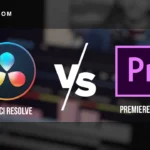The Future of UK Media Production: Trends, Technologies, and the Quest for Global Impact
The UK has a rich tradition of media production, from iconic film studios to pioneering broadcast companies. However, the industry is facing sweeping changes, fueled by digital disruption and evolving audience preferences. The article serves the purpose of setting the framework within which the determination of the main trends affecting the development of UK media production should be done, through the main trends, technological breakthroughs, and challenges.

Key Trends Reshaping the UK Media Landscape
- The Supremacy of Streaming: Even this is undergoing change in terms of how the public views this content, with the likes of Netflix, Amazon Prime Video, and Disney+ forcing a change in audience habits. Even such traditional broadcasting firms like the BBC and ITV are being forced to transform through their on-demand services. It is the change pushing for an ever-greater need for premium, original content made for such a wide variety of international and multi-lingual audiences.
- Personalization and Interactivity: Each day, more and more technologies are becoming personalized content experiences with the help of artificial intelligence and machine learning. Here, even more accurate and precise recommendations of the viewer’s tastes are awaited, which would not take any objective composition borders between passive consumption and active participation.
- Immersive Storytelling: Augmented Reality (AR), Virtual Reality (VR) and mixed reality technology open potential in an immersive experience and production, from storytelling to mapping the human genome. In fact, any minute now, spectators will find themselves virtually inserted into their favorite movies or news events, adding immersion and engagement.
- The Rise of Independent Creators: In fact, these easily available production tools and this digital platform are actually empowering a new generation of independent creators from every nook and corner of the world. Media democratization is set to take full swing when established studios and production houses compete with, but at times also collaborate with these independent voices.
Transformational Technologies in UK Media Production
- Cloud-Based Production: The revolution in cloud computing has revolutionized the workflow of production. Smaller teams can perform their work from the remotest corners of the world due to the capability of working from anywhere that cloud computing provides. Now, smaller teams can do their jobs in an efficient manner.
- Virtual Production and VFX: The production was already further blurred with such accessibility drivers as LED walls, real-time rendering engines, and motion capture. Now filmmakers can produce their own fantastical worlds and complex scenes in soundstages at an affordable cost.
- AI-Powered Solutions: AI and machine-learning algorithms are smoothening the production pipelines in several areas – from scripted analysis and production scheduling to automated content tagging and even the creation of metadata.
Challenges to Overcome
- Sustainable Production Practices: These two industries in a way force each other to even greener production strategies, involving reduced carbon footprints, minimum waste, and energy uses, and sustainability practices of storytelling.
- Attracting and Upskilling Talent: The UK industry needs focused initiatives to continuously train and upskill its workforce, due to the rapid pace of technological change, to remain globally competitive.
- Global Competition: That means the UK is facing intensified competition now from rapidly growing media production hubs around the world. The UK has positioned itself as a world leader in media production. Bold investments and strategic approaches aimed at attracting international productions and talent must be involved in maintaining this status as the center of excellence.

Current Utilization of AI in UK Media Production
- Content Creation: From news articles created with the help of special algorithms based on natural language processing (NLP) to AI-assisted scriptwriting, where AI participates in dialogue and storyline creation, content generation is being slowly automated with each passing day.
- Editing and Post-Production: AI tools will greatly speed up the editing process, bringing it from hours of sifting through footage to minutes of suggestions for the best clips. For example, a frame could automatically color-correct or improve its sound quality with AI, hence a significant reduction in post-production times.
- Content Recommendation: Streaming services and online platforms leverage AI to analyze viewing habits and recommend personalized content to users, improving engagement and user satisfaction.
AI therefore poses a double-edged sword to media production in the UK, offering unparalleled opportunities for greater innovation and personalization while also casting aspersions on conventional models of production and ethical norms. This point underscores the importance of the UK media industry negotiating this well ensuring AI is used to augment creativity and inclusivity, rather than eclipse them.
Wanna know more about our services? – CLICK HERE








